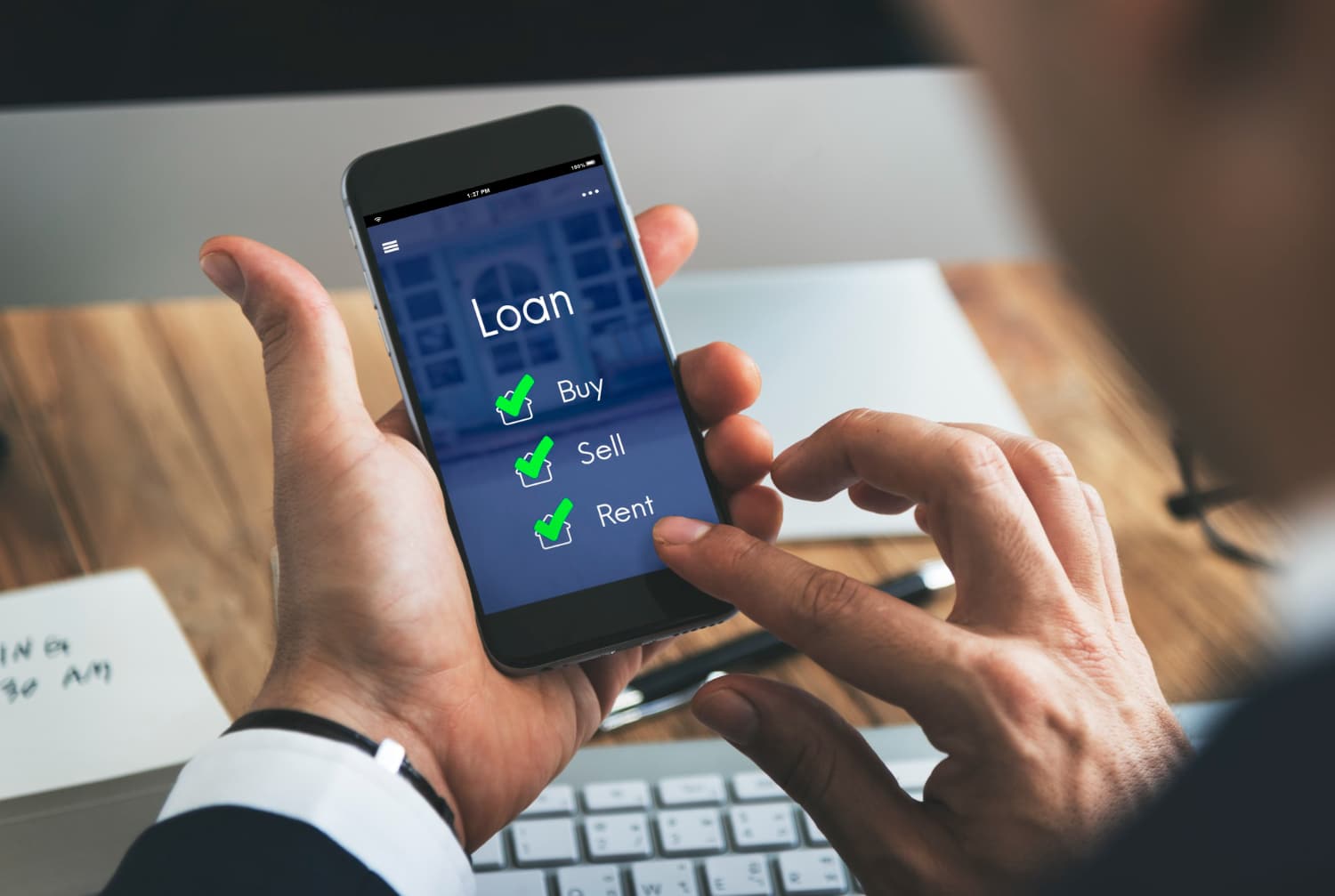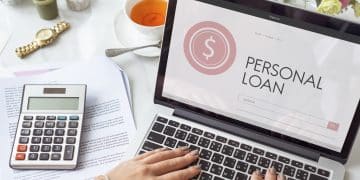Unsecured loan: Everything you need to know before applying

Anúncios
If you need extra money — whether to cover emergency expenses, consolidate debt, or fund a personal project — you’ve likely come across the term unsecured loan.
But what is an unsecured loan, and is it the right option for your financial situation? Unlike secured loans, they don’t require you to put up any collateral — but that doesn’t mean they come without risks.
In this guide, we’ll explore in detail what an unsecured loan is, how it works, who it’s best suited for, and the factors you should consider before applying.
Anúncios
We’ll also explain how it compares to a secured loan, the types available, the approval requirements, and how to apply for one.
Keep reading to make an informed decision and discover whether an unsecured loan is right for your needs.
What is an unsecured loan?
An unsecured loan is a type of credit that doesn’t require collateral. This means you don’t need to pledge an asset — like a car or a home — to receive the funds.
Anúncios
Instead, lenders approve your application based on your creditworthiness, assessed through your credit score, income, debt-to-income ratio, and credit history.
Since there’s no collateral for the loan, unsecured loans tend to have higher interest rates compared to secured ones.
If you fail to repay, the lender can’t directly seize your assets, but they can take legal action or send your debt to collections.
Common examples of unsecured loans include personal loans, credit cards, and student loans.
Who should consider an unsecured loan?
Unsecured loans are ideal for borrowers with strong credit profiles who don’t want to risk putting valuable assets on the line.
If you have a stable income, a good credit score, and relatively low debt, you may qualify for favorable terms — even without collateral.
This type of loan is also a solid option for people who need quick access to funds, as the approval process is typically faster than for secured loans.
Whether you’re consolidating high-interest credit card debt, financing a wedding, or covering emergency medical bills, an unsecured loan can be a practical solution for short-to-medium-term needs.
Unsecured loan vs. secured loan: key differences
The biggest difference between a secured and an unsecured loan is the collateral.
A secured loan requires you to back the loan with an asset — like your car or home — which the lender can seize if you fail to repay.
In contrast, an unsecured loan is riskier for lenders, so they charge higher interest rates to offset the lack of security.
Secured loans may also offer more flexible terms and higher borrowing limits, while unsecured loans tend to have shorter repayment periods and stricter eligibility requirements.
Understanding these distinctions is essential when choosing the right type of loan for your situation.
Main types of unsecured loans
There are several types of unsecured loans, each serving different purposes. Understanding their features will help you choose the best option:
- Personal loans: The most common type of unsecured loan. They can be used for a variety of needs, including debt consolidation, medical expenses, or home improvements.
- Credit cards: Technically a form of unsecured revolving credit. You’re approved for a credit limit and can borrow as needed, repaying monthly.
- Student loans (federal): Most federal student loans are unsecured and don’t require collateral. They’re need-based and offer flexible repayment options.
- Lines of credit: Similar to credit cards, they allow you to withdraw funds as needed up to a set limit and pay interest only on what you borrow.
Each type has its own interest structure, fees, and repayment terms; therefore, comparing them before deciding is crucial.

Is an unsecured loan worth it?
Before applying for an unsecured loan, it’s important to weigh the pros and cons carefully. While these loans offer flexibility and quick access to funds, they’re not always the most affordable option.
Pros of unsecured loans
- No collateral required: You don’t have to risk personal assets like your car or home to qualify.
- Faster approval process: With no collateral evaluation, lenders can process and disburse funds more quickly.
- Flexible use of funds: You can use an unsecured loan for almost any purpose — debt consolidation, medical bills, travel, home repairs, etc.
- Fixed terms and payments: Many unsecured personal loans come with fixed interest rates and monthly payments, making budgeting easier.
- Good for building credit: Successfully managing and repaying an unsecured loan on time can improve your credit score.
Cons of unsecured loans
- Higher interest rates: Since there are no assets securing the loan, lenders charge higher rates to offset the increased risk.
- Stricter credit requirements: Lenders rely heavily on your credit score and history, making it harder to qualify with poor credit.
- Lower borrowing limits: You may not be able to borrow as much as you could with a secured loan.
- Possible fees and penalties: Some unsecured loans include origination fees, late payment penalties, or prepayment charges.
- Credit damage from default: Missing payments or defaulting can severely harm your credit and lead to collections or legal action.
Requirements to qualify for an unsecured loan
Lenders use several criteria to determine your eligibility for an unsecured loan. Since there’s no collateral, your personal financial profile must show that you’re a trustworthy borrower.
Your income
Lenders need to confirm you earn enough to repay your monthly installments. Expect to provide payslips, tax returns, or bank statements as proof.
The higher your income relative to your loan amount, the more favorable your terms are likely to be.
Your credit report and score
Your credit score plays a critical role in securing an unsecured loan. Lenders look for a strong history of on-time payments and low credit utilization.
A score of 670 or higher generally increases your chances of approval and better interest rates.
Your assets
Although assets aren’t used as collateral, some lenders still consider your overall financial health, including savings and investments, to assess your risk level.
Having a financial cushion can work in your favor.
Debt-to-income ratio
Your debt-to-income (DTI) ratio compares your monthly debt payments to your gross income. Most lenders prefer a DTI below 36%.
A high DTI suggests you’re financially overextended and may struggle to repay an unsecured loan.

What to consider before applying for an unsecured loan
Taking out an unsecured loan is a serious financial decision. Before signing, make sure you’ve considered all angles to avoid surprises down the line.
Your ability to repay
Be honest about your financial situation. Can you manage another monthly obligation without sacrificing essentials?
Failing to repay an unsecured loan can hurt your credit and lead to rising fees.
Impact on your credit score
Each loan application results in a hard credit inquiry, which may temporarily lower your score. More importantly, failing to keep up with payments will have lasting negative effects.
However, successfully repaying an unsecured loan can help improve your credit over time.
The lender’s reputation
Only borrow from reputable lenders. Look for transparent terms, reasonable fees, and solid customer reviews.
Watch out for predatory practices, especially if you’re approached with “pre-approved” offers that seem too good to be true.
How to apply for an unsecured loan
Applying for an unsecured loan is usually straightforward, but preparation is key to improving your chances of approval and securing better terms.
Start by checking your credit report and improving your score if needed.
Gather all necessary documents, including proof of income and employment, and compare offers from multiple lenders — banks, credit unions, and online platforms all offer unsecured loans.
Use pre-qualification tools when available to see estimated rates without impacting your credit.
After choosing the best offer, complete the application and submit your documents. Approval decisions may be made within minutes or a few days.
If approved, funds are usually deposited into your account quickly — sometimes within one business day.
An unsecured loan can be a powerful financial tool when used wisely. Whether you need to consolidate debt, handle an emergency, or finance a major purchase, it offers flexibility without putting your assets at risk.
However, understanding what an unsecured loan is, how it differs from secured credit, and the key factors that influence approval is crucial before signing on the dotted line.
Now that you know the pros and cons of unsecured loans, you’re ready to explore your options with confidence.
For more practical financial advice, loan comparisons, and money-saving tips, keep browsing our site — we’re here to help you take control of your finances, one smart move at a time
Want a tip? Check out our article explaining how the gas credit card works!





